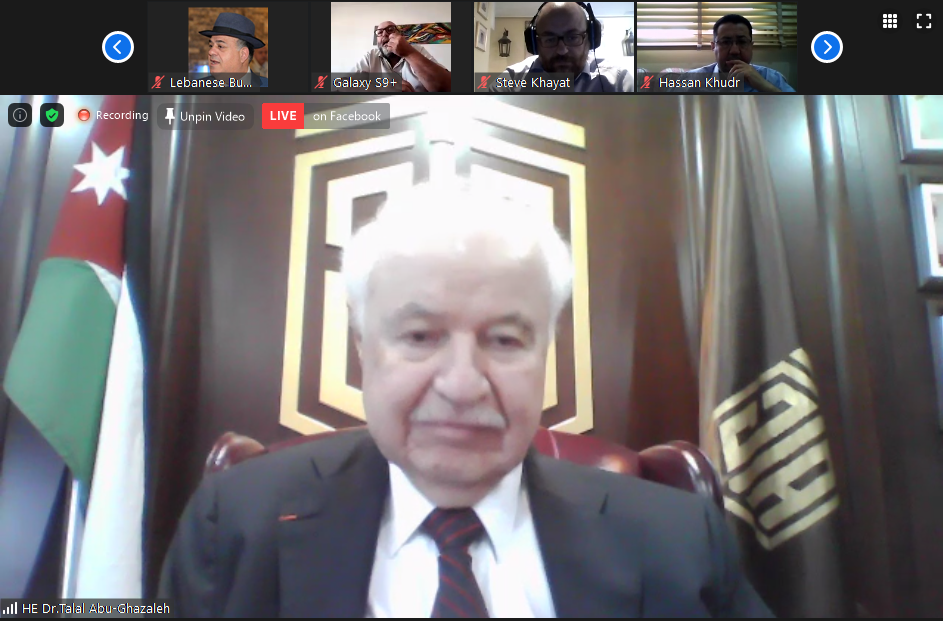At the Lebanese Business Council in Kuwait Abu-Ghazaleh Calls for Transition to Knowledge-Based Economy for Crisis Management
08 Jul 2020AMMAN – HE Dr. Talal Abu-Ghazaleh, founder and chairman of Talal Abu-Ghazaleh Global (TAG.Global), participated in the ‘Lebanese Business Council in Kuwait’ (LBCK) entitled ‘Private Sector’s Opportunities and its Tools in Managing the Crisis under the Transition to a Knowledge-based Economy’.
 During the event, moderated by Council member Ms. Sara Abdul Samad, Dr. Abu-Ghazaleh talked about ‘Crisis and Opportunity’, saying that Coronavirus (COVID-19) made it evident that digital learning became a necessity asserting itself as the future shape of education. He added that he has been calling for the adoption of this form of education since 2001 when he was Chair of the United Nations Information and Communication Technologies Task Force (UN ICT TF),
During the event, moderated by Council member Ms. Sara Abdul Samad, Dr. Abu-Ghazaleh talked about ‘Crisis and Opportunity’, saying that Coronavirus (COVID-19) made it evident that digital learning became a necessity asserting itself as the future shape of education. He added that he has been calling for the adoption of this form of education since 2001 when he was Chair of the United Nations Information and Communication Technologies Task Force (UN ICT TF),
Dr. Abu-Ghazaleh also tackled issues related to knowledge-based economy, stating that knowledge economy would not exist without a knowledge-based government (e-government), just as e-commerce could not exist without digital learning.
Furthermore, Dr. Abu-Ghazaleh explained the concept of ‘self-sufficiency’ saying that ‘it is about time for every country to achieve self-sufficiency; at least in terms of producing its basic needs of food as well as medicines, noting that after 20 years drugs’ manufacturing loose its intellectual property protection, therefore any country can produce it without the patent owner’s permission.
Regarding innovation and creativity, Dr. Abu-Ghazaleh asserted that the Internet guarantees full democracy, therefore, every country has to make this service available to its citizens. He pointed out that the right to Internet access is a human right in accordance with the UN resolutions, and every person who strives for creativity and innovation needs the Internet even if not been supported by individuals or organizations.
Discussing the issue of ‘Lebanon and the US Dollar crisi’, Dr. Abu-Ghazaleh said: ‘The problem is not only the US dollar shortage; clarifying that the dollar-based financial transactions constitute less than 10% compared to the Lebanese pound. Yet, he reiterated that ‘the problem lies in the domestic production of the country. The US dollar issue is purely political he said adding that it is not a deficit in the economy. Therefore, it could be only solved through political means.





